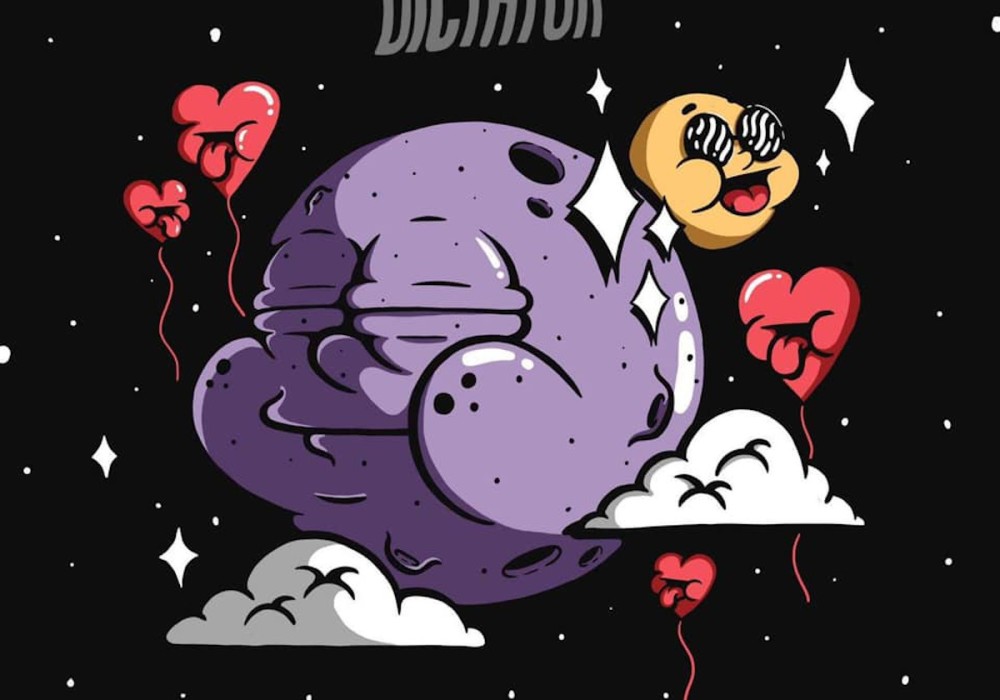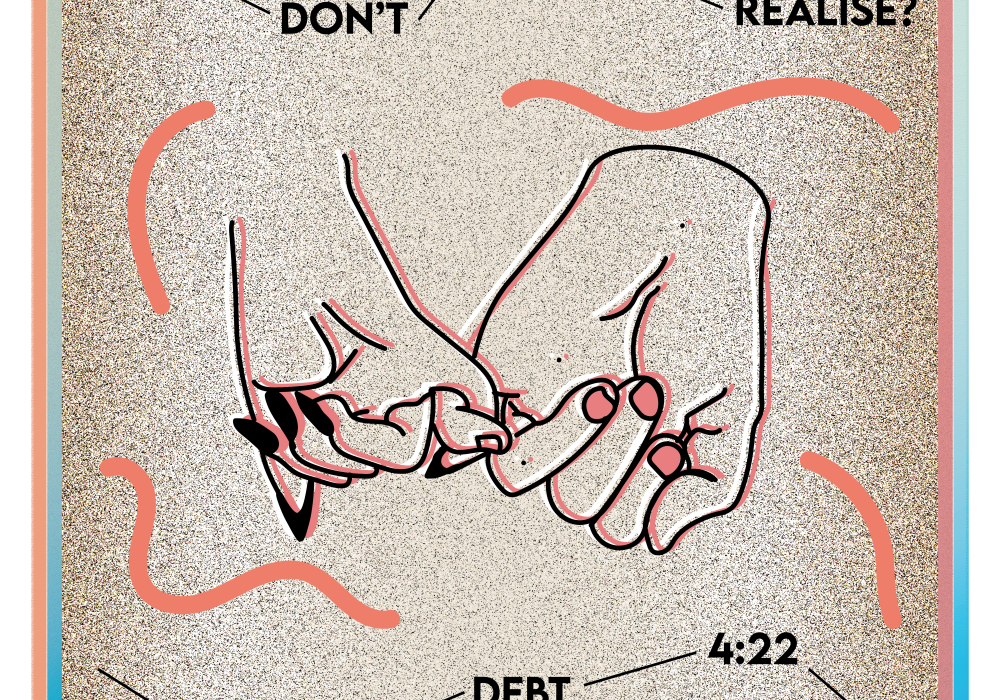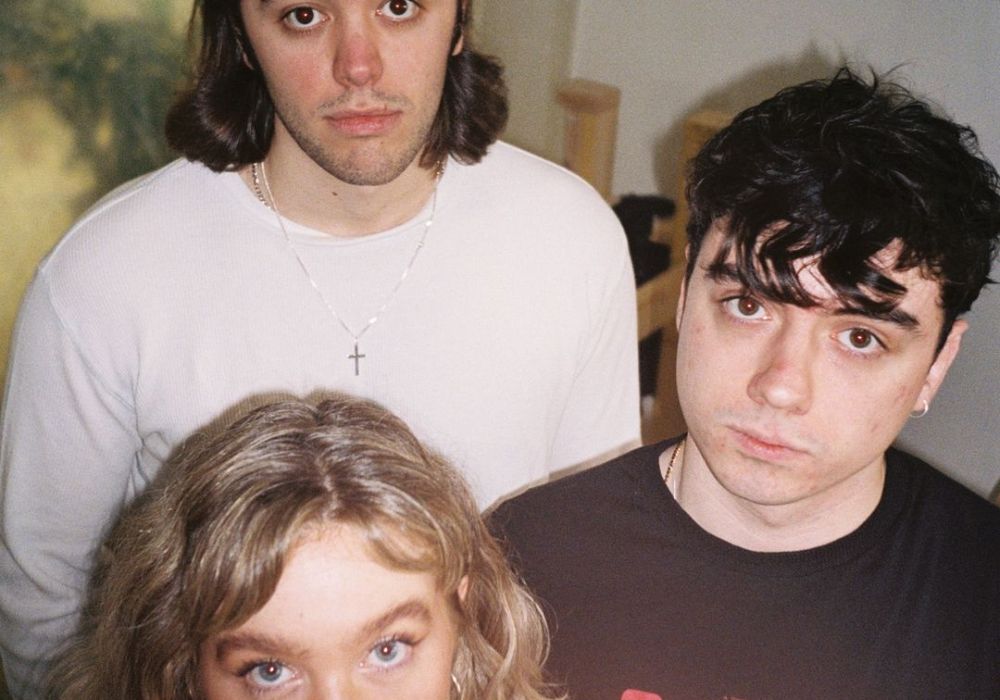
Lockdown Zoom Collaboration, Persistence, Authenticity, and Staying Power. Ross Leighton of Fatherson shares some personal insight with me on Normal Fears.
This article first appeared on The Music Files, 03/04/2022.
Fatherson are a band that have found their way steadily into my algorithmic Spotify bubble, partly through occasional recommendations through friends, and probably because Spotify knows that I listen to a lot of Scottish bands. Rich Turvey (Blossoms, Courteeners), Seton Daunt (Kylie, Amy MacDonald), and Amber Run’s Joe Koegh are all named song writing collaborators, which brings an exciting new flavour to an already accomplished and much loved Fatherson, but latest instalment ‘Normal Fears’ still maintains that special original recipe from the big three: bassist Marc Strain, drummer Greg Walkinshaw, and singer/guitarist Ross Leighton.
I jumped at the chance to speak with Ross over Zoom, and our conversation felt organic, informative, and fun.
I’m by no means a super fan, but I’ve also really enjoyed getting more into your music recently, I loved Charm School from the last album, there’s something to me about the sound of Fatherson that feels very familiar and comforting, is that something you’ve heard before?
Ross postulates, “I sing in my native accent, so it is inherently Scottish, and naturally embroiled with tongue and cheek sadness.” He adds with a smile, “I’ve always kinda wanted to be Damien Rice but with a Rock edge.” Melancholic I agree, I’m curious about how Fatherson have managed to build consistently from strength to strength, as well as the effects of lockdowns on their trajectory over the last couple of years:
Did the successive lockdowns and the inability to play live bring about any existential crises and make you question whether the band would continue?
“It was our longest stint without being able to play shows, which has always been the most important part of being in a band to us, but I never outright wanted to patch it.” Ross continues about how great it is to be back and releasing new music, “Playing shows scratches an itch that nothing else will.”
What kind of position then do you see yourself in now, and what are you hoping to achieve with this latest album?
Ross is keen to stress that simply being able to go on and keep doing what they do best is at the heart of everything they do as a band, “we’re fortunate that we can now sell out big rooms in places like Germany as well as across the UK, but ultimately we want to play as much as possible, we’re looking to grow and reach a new audience, but we still want to bring our older supporters along.” This brings me to consider the newer approach that has been brought to the song writing.
On Normal Fears, there are notably several exciting collaborations with other song writers, what prompted this approach in the creation of this album?
“I know so many people that play music that I personally love.” Ross explains that after years of being in a working band, you meet creative contemporaries along the way, and build special relationships that he’s keen to take advantage of, “I think that a guarded campus can be destructive,” he continues, “working with someone else brings a guarantee of learning something new, I’ve got three albums that prove I can write songs myself, the collaborations widen the net of possibility and opportunity.”
Ross goes on to discuss how arranging song writing sessions over Zoom was an easier and more productive process than one might think. His advice for aspiring artists and song writers is simple, “just reach out to people, don’t be afraid to be more collaborative.”
For the average reader then, how do you actually write a song with someone else over video call?
“Start with a conversation about songs that you’ve liked that you’d like to take inspiration from. You could say, let’s make something that sounds like a certain track.” Once an agreement has been made on the basic idea, Ross might typically start with some chords on piano, and do bits of singing on top, not necessarily words, just something to have an idea of a vocal melody line. Taking breaks is also a great thing to manage over a video call, “we might record a chord pattern, then go away for 45 minutes to an hour and think about it, then come back and review after giving it some space… It’s important to be flexible and supportive, ultimately you want to make sure nobody feels like shit.” Doing things online he has found also reduces the pressure around working with someone and feeling like it has to be a success because of the time and effort invested, which would be the case if you’re travelling a long way and spending money to make something happen, “there’s no harm in dipping your toe and not liking it.” Since doing things online is less intense, it’s easier to let something go that’s not working out.
He has loved spending time song writing in London, “chatting shite and writing tunes,” and feels that writing with others on this album has helped him feel comfortable doing more collaborations, partly due do being able to develop a good workflow, which makes the whole thing feel less daunting.
Speaking of trying new things for the album, are there any tracks that turned out to be a pleasant surprise to you when they were done?
“The second to last song Crying Wolf was quite interesting,” Ross tells me how the band got together in their rehearsal space, “we had this organ sound playing on keys that we liked, and played for about 12 minutes solid over it, and in that time the full song was finished.” He likes this because some of the rest of the album is, “demure and soft,” see tracks 10: All the Time, and 13: Wreckage in the Rubble as a notable examples, whereas Crying Wolf Ross shares, “feels big and busy.”
Another special mention goes to the final track, Wreckage in the rubble, which Ross reveals is the first and only song Fatherson have ever released that features a solo acoustic performance from himself.
So why have you chosen to aim towards making albums over the years, rather than follow the more modern formula of lots of singles, and focussing on streaming and social media?
“Listening to albums is my preferred way to listen to music, I remember growing up and having a new CD, and that would be the only thing I had, so I would just listen to that on repeat, I listened to all my favourite records that way.” We talk about bands and artists today that we both like that also follow the album-focussed approach; Bon Iver, Sam Fender, Idles, Biffy Clyro, Paramore and Foo Fighters (RIP Taylor Hawkins) comprise an eclectic list. This demonstrates to me that if a band like Fatherson are working hard, and building on their successes, they can follow a similar path.

If you were starting a new band in Scotland then, what would you do now if you wanted to follow this approach?
“Write lots of songs, play (live) as much as possible, pay attention to what people like, apply to Creative Scotland for funding… through being on the road for years, we were able to find our people,” which feels like a great way to think of your fans, the love is clearly mutual, hard earned, maintained and cherished carefully. Ross talks about how his own stage manner can change depending on his mood, “it’s all still me,” he says, “our audience obviously like that.”
Ross goes on to warn against the dangers of virality as a band, “it’s essential to remain authentic,” he says, “it keeps you grounded.” Although he does recognise the value of social media and strategy to promote yourself, “build up to your best work, you want people to see the progress in your output. Don’t worry about what everyone else thinks” – although he adds as an aside, “even though it’s impossible not to care.”
I realise we’re touching on some of the themes behind Normal Fears, and I ask Ross to unpack some of the relevance between the conversation and the new album:
“What are some normal fears?” he says, “it’s ok to be afraid, it’s ok not to have things figured out, despite how it may seem, no one has it all figured out.”
He then goes further, harking back to working with collaborators on song writing, “any thought you’re having has been thought before, there is comfort in the fact that not everything you can conceive of (creatively or otherwise) is unique to you.”
This brings further emphasis to the notion of being authentic, and Ross warns against trying an idea you’re not fully behind to gain clout or success. “Doing things for a specific outcome is a sure-fire way to break your own heart.” – This statement hangs in the air with a palpable sense of inherent truth. I pause to reflect on this, and congratulate him on such a poetic line to encompass this concept of being real as an artist, versus trying to deliberately generate progress in your career.
It’s been a sincere and somewhat therapeutic conversation for someone such as myself, looking at a band like Fatherson and wondering how I can emulate their successes and longevity in music. Acceptance of Normal Fears, Ross has confided in me, would certainly go a long way.
Listen to Normal Fears.
Keep up with Fatherson.
Scottish dates:
May 27th – Aberdeen, Lemon Tree.
May 28th – Glasgow, Barrowland.











